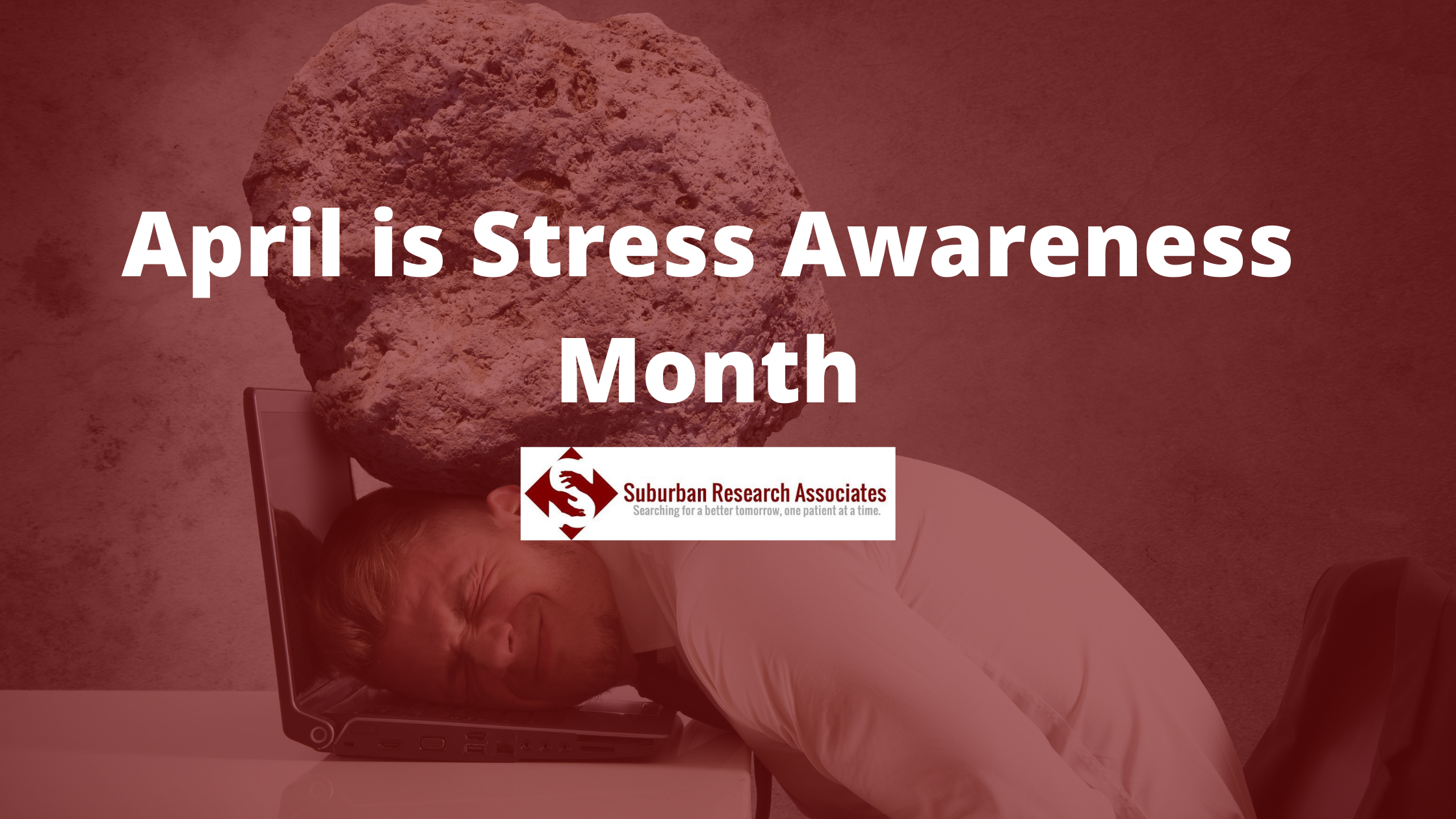In observance of Stress Awareness Month, we wanted to talk about stress, stress management, and mental health.
Let’s face it. We all have stress; whether it be work stress, academic stress, or just general life stressors that people experience. When stress becomes chronic or coincides with another mental health condition, it can feel overbearing and take a significant toll on your mental and physical health.
So, what is stress? You may be thinking that’s a silly question, everybody knows what stress is; however, that is not necessarily true. There are actually many layers to stress, how it manifests, and even different types.
The American Psychological Association recognizes three primary types of stress: acute stress, episodic acute stress, and chronic stress. Let’s break them down:
- Acute stress: The stress we all know, our everyday life stressors that get in the way. Maybe you’re cramming for a test, running late for work, or trying to figure out work-life balance. It is something we may recognize here and there, and feel a jittery physical sensation that comes with it, like rapid heart race, sweaty palms, etc. Everyones response and reactions, both physically and emotionally, are different for this type of stress.
- Episodic acute stress: This is stress where you might start to realize is becoming more of a daily presence in your life, as opposed to just an occurrence here and there. You may start feeling burnt out and tired from whatever it is that your stress may be resulting from.
- Chronic stress: This type of stress has the most impact on your physical and mental health. It could result from trauma, PTSD, or feeling like you’re in constant “fight or flight” or “life-saving” mode. It may start to impact your ability to function productively in daily activities because it is taking over your mind and body.
An article by Psychology Today, goes even more in depth on these sub-types of stress.
You may be asking yourself, how do I know which type of stress is impacting me and how can I manage it? Here are a few helpful tips:
- If you’re experiencing any type of stress that is getting in the way of your daily activities and functioning, we encourage you to take some time to reflect on what may be contributing to your stress. Sometimes this can be hard to figure out on your own, so talk about it with someone. Whether that is a friend, family member, or professional, it can be really useful. Even if you don’t feel like it is “that bad”, talking about it can help prevent it from progressing, even if it is just acute stress.
- When in doubt, write it out. Not sure where to start? Do you feel like your thoughts are scrambled or all over the place? Sometimes it can be harder to articulate in your head than breaking it down on paper, so give it a try, even if it’s just for your eyes only.
- Take 5-10 minutes every day to do one thing that you enjoy, or to do absolutely nothing. Our lives can be so busy. Maybe you’re running in and out of meetings, have back-to-back phone calls, driving from place to place, taking care of children, etc. Whatever your circumstances are, we all need 5-10 minutes a day to just put everything down and not have to think. If you have more than 5-10 minutes of time to do this, the more time the better, but if you don’t, just that small amount can make a huge difference.
- Breathe deeply. When you feel stress coming on or when you’re in the middle of a stressful event, take a minute to take 5-10 big deep breaths. This is something we can so easily forget to do if we’re busy. We consciously think that we’re breathing all the time because it happens so naturally; however, there is a difference between normal breathing and deep breathing. Deep breathing can calm the nervous system and mind. Even if you are not feeling stressed at the moment, this is a great thing to implement into your routine to avoid or minimize stress so it doesn’t build up.
- Get outside. Studies have shown time and time again that the outdoors and sunlight can be instant mood-boosters. With the weather getting warmer, try to take advantage of it and get outside when you can, even if it’s just for 5 minutes.
- Seek professional help. If you feel your stress is starting to take a toll, don’t be afraid to reach out for help. There is no shame in seeking help when needed. We all can’t get through everything alone. Not ready for professional therapy or medication? You don’t have to be. You can even text a Crisis Counselor anytime by texting “Home” to 741741 if you’re in crisis, or if you just want to chat.
We hope this blog post has helped you gain a better understanding of stress and how to manage it. Be sure to share this post to spread awareness of Stress Awareness Month. We all have stress, so why not talk about it?


